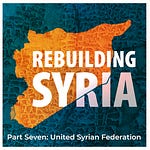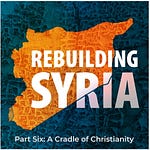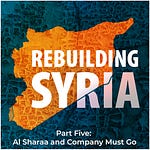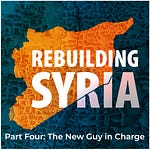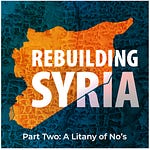This episode was recorded on May 16th, 2025.
What does it mean to rebuild a country without erasing its ethnic and religious DNA?
In Part 3 of Evolve’s Rebuilding Syria collection, host Jamil Khoury explores the powerful metaphor of the Syrian mosaic—a symbol of coexistence, complexity, and contested meanings. Through vivid reflections, he unpacks Syria’s rich patchwork of ethnic and religious communities—how they’ve been portrayed, politicized, and preserved across centuries.
But the mosaic isn’t just a symbol of beauty—it’s also a battleground of interpretation. While some celebrate it as proof of pluralism, others view it as a colonial tool that fractures unity.
Khoury, founder and director of the Polycultural Institute at Chicago’s Silk Road Cultural Center, dives into these tensions with both passion and precision. Whether you’re new to Syria’s story or returning to it with fresh eyes, Part 3 offers a thought-provoking exploration of identity and resilience.
Topics include:
The mosaic vs. the melting pot
Syria’s pluralistic heritage and its myriad challenges
How history shapes national narratives
The role of colonialism in cultural framing
This episode invites listeners to see not just the shards—but the artistry—in a country often viewed only through the lens of conflict.
Polycultural Institute is the Think-and-Create Tank of Chicago’s Silk Road Cultural Center. We generate art and ideas that promote polyculturalism and connect people, cultures, and communities.
Polyculturalism is the theory that cultures continuously evolve and transform through dynamic interchange. It assumes that cultures are fluid and flexible, not static and fixed, and that as cultures interact, they redefine themselves.
Silk Road Cultural Center is a Chicago-based interdisciplinary arts organization rooted in the modern communities of the historic Silk Roads, including our diaspora communities. We embrace the arts as a catalyst for connecting people, places, histories, and futures.





